While living down in Changhua City last winter I made occasional forays up and down the TRA Western Line 西部幹線 to scope out places not commonly written about in English. One such place is Douliu, the administrative seat of Yunlin, which hardly earns more than a passing mention in the English language blogosphere. It was a worthwhile trip too—apart from the famous Tàipíng Old Street 太平老街 and the surprisingly large and lively Douliu Night Market 斗六夜市 I also chanced upon another abandoned entertainment complex, the Dòuliùmén Building 斗六門大樓, named after an archaic term for the city dating back to the 17th century. This building was also once home to the Shuāngzǐxīng or Gemini Theater 雙子星戲院.
Since I began getting out and exploring more of central and southern Taiwan I’ve developed something of a pet theory: there’s a very good chance you’ll find an abandoned entertainment complex or commercial building much like the Qiáoyǒu Building 喬友大廈 near the train station in every sizable settlement on the railway line1. Sure enough, after five minutes of poking around the cramped streets south of Douliu Station 斗六車站 I came upon an oddly shaped and obviously abandoned building with a sign out front that reads Dàtǒng Bingo Plaza 大統賓果廣場, doubtless the name of a former gambling den. Not long after spying this structure from the street I was scaling one of the outer stairwells in search of what might be seen.
On the seventh floor an open door beckoned me inside. Here I encountered the remains of an old movie theater stripped down to the floorboards. Red seat cushions, once stacked in neat piles, were scattered around the dimly lit room. I turned a corner and entered the projection booth. Not much had been left behind, just some old film spools and the detritus of many passing years. Peering through the square holes in the wall into the theater beyond I imagined how it might have looked when the light of the very last film splashed across the screen. Usually I am left wondering about those last moments—but not this time. With a bit of sleuthing around I uncovered the story of this theater’s dying days.
Gemini Theater 雙子星戲院2 opened in 1981 in the midst of the boom times of the Taiwan Economic Miracle 台灣奇蹟 and must have prospered during democratization. By the 2000s movie theaters all around Taiwan were struggling with competition from other forms of entertainment (video games, for instance) and piracy, both of which were causing audiences to dwindle. This particular theater moved downmarket, much like the Chin Men Theater 全美戲院 in Tainan, transforming itself into a second-run theater selling double feature tickets for the modest sum of 100 NT (about USD$3) near the end of its lifetime. This was not enough to halt the decline—and when the entire building was sold to new owners it looked as if the theater’s days were numbered.
Eventually all employees were let go—there simply wasn’t enough money to pay anyone and the new landlords weren’t willing to lower the rent. The theater would have shut down entirely were it not for the tireless efforts of Wáng Gāngyì 王剛毅, a former employee in his mid-60s with a passion for cinema. Working entirely for free3, he single-handedly sold and checked tickets, ran the projector, cleaned up hundreds of seats after each showing, and even hand-painting billboards and signs. This, in turn, attracted the attention of student organizations like Film Effects 膠捲效應, who shared this fantastic set of photos about efforts to save the theater. A series of videos was also released about Wang and Gemini Theater; watch them here, here, here, and here.
Media exposure and a groundswell of support from local film enthusiasts was not enough to save Gemini Theater. A final showing was announced in the summer of 2013—but, in a plot twist that would have been right at home on the silver screen, the building’s electricity was switched off without warning two days prior to the big event. With the support of many volunteers Wang managed to pull it off somehow—and the last film was shown to a full house despite the dank summer heat and lack of air conditioning4.
The story of the old man and the theater reminds me of Goodbye, Dragon Inn 不散, a Taiwanese film shot in a now-abandoned theater in Yonghe that I plan to visit one day. Read this review in the New Yorker for a preview. Here it seems fitting to quote one of the only spoken lines of dialogue in the film: No one goes to the movies anymore, and no one remembers us anymore.
Of course, I knew nothing of the history of the building while I was exploring it. I could discern only the barest outlines of the story—past prosperity, generational change, and terminal decline. It was, at the time, just another abandoned building filled with unknowable stories, echoes of the lives of others. That I now have some insight into what happened there provides for a strange kind of remembering.
A rosy-hued apartment several levels below the theater provided another way of remembering. Here I found a small pile of photographic negatives laying on a moldy mattress. I unfolded a set and splayed them across the dusty window to capture their essence. Despite the water damage, decay, and less than ideal conditions, I was able to digitally expose them and catch a glimpse of the past.
One last thing worth mentioning about this building is that it was recently damaged by Typhoon Soudelor 蘇迪勒颱風. The news report mentions that permission had to be secured from the Taipei-based owners to remove a dangerous piece of metal hanging from the rooftop.
For more photos from the theater before it closed have a look here and here.
- This same logic brought me to the Fuyou Building 富有大樓 in Taitung City. ↩
- None of these places have official English names insofar as I know. “Gemini Theater” could also be written “Twin Star Theater”. Business records indicate it might have been officially known as the Douliumen Theater 斗六門戲院, although there’s also a chance there were two theaters in this building at some point, or perhaps it was renamed (a common occurrence when a theater business is sold to a new owner). ↩
-
An explanation of Wang’s motivations from the Apple Daily story:
做盡一切,讓戲院繼續戲院的生命;不管一切,東奔西跑,賣票帶位後,走回寂靜的放映室裏,啟動奇妙的放映機。老戲院因他的上帝之手,燃亮生命。他相信,電影能帶給觀眾不一樣的世界,讓觀眾思考。他希望今後的年輕人,仍然有機會在這樣的漆黑格局裏,集體等待,集體欣賞放映機轉動膠卷下的星光世界。
↩ - One thing I haven’t been able to puzzle out is what film was shown on the final night. ↩
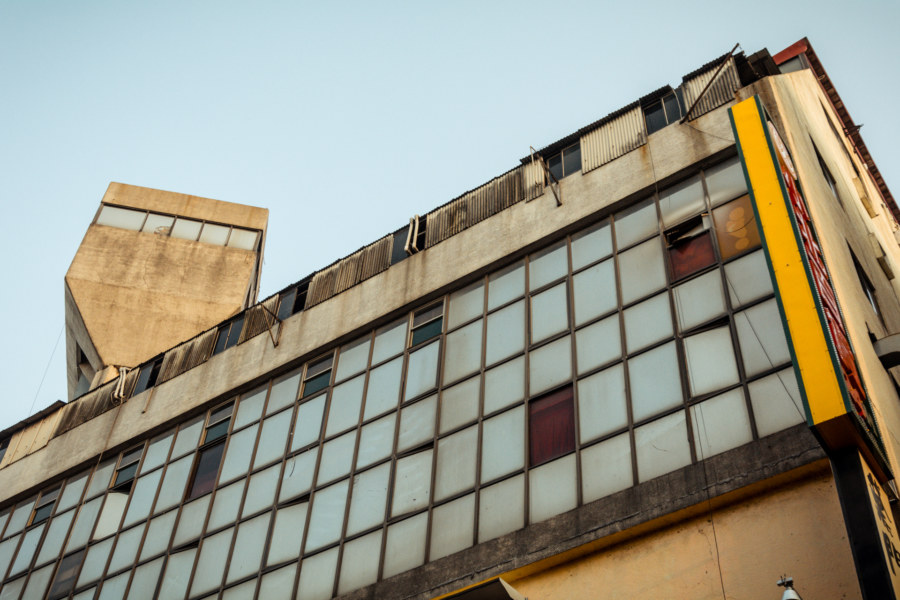
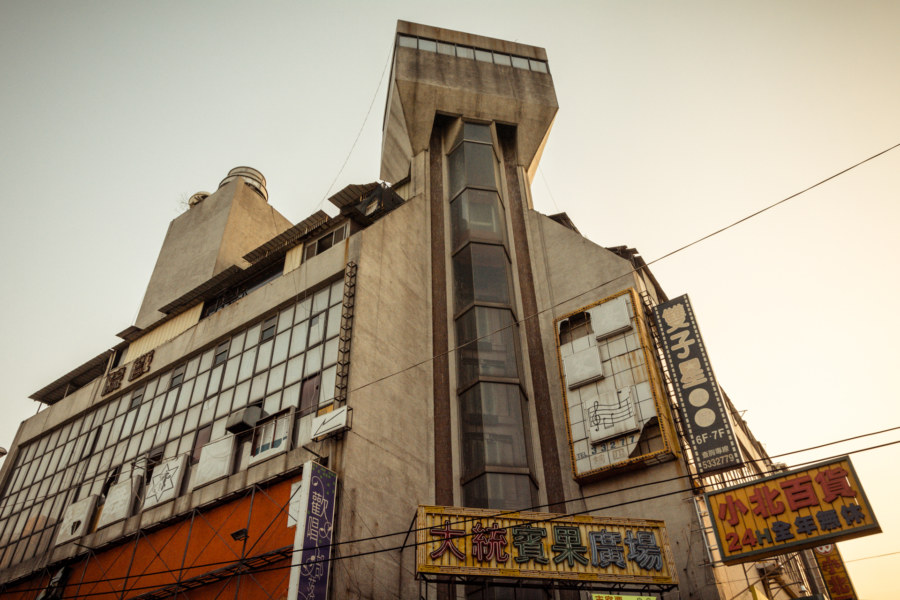
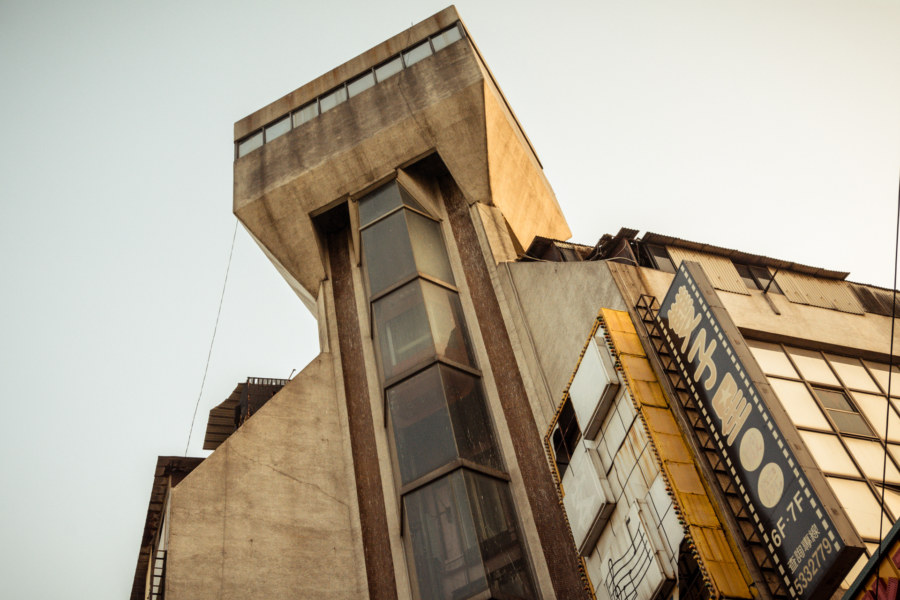
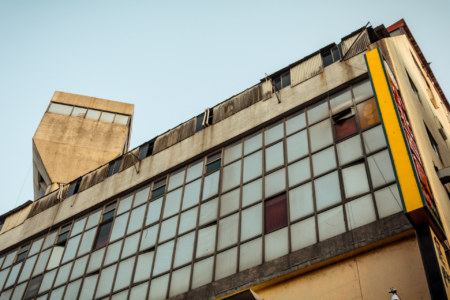
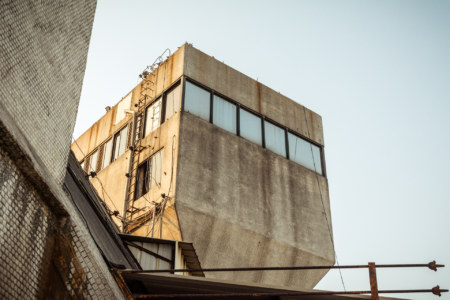
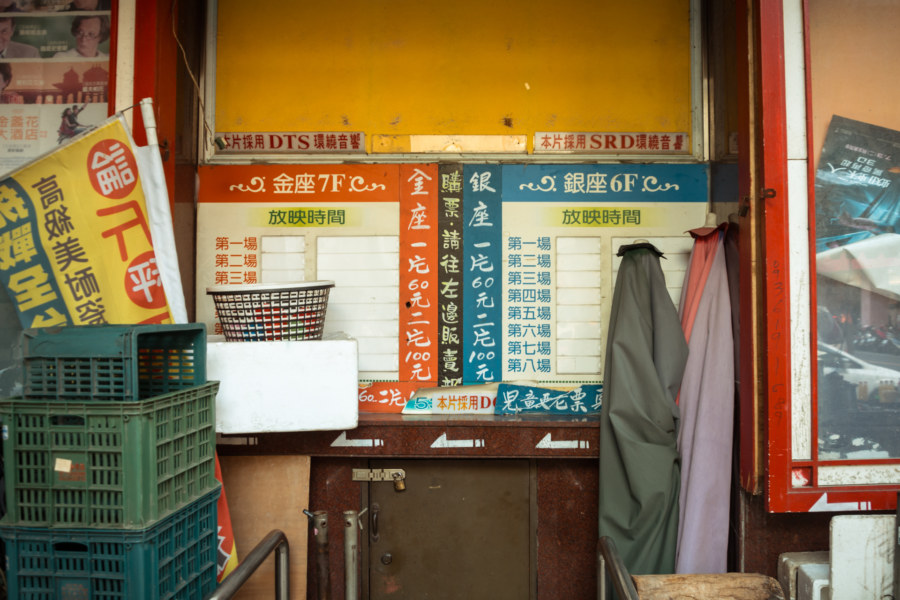
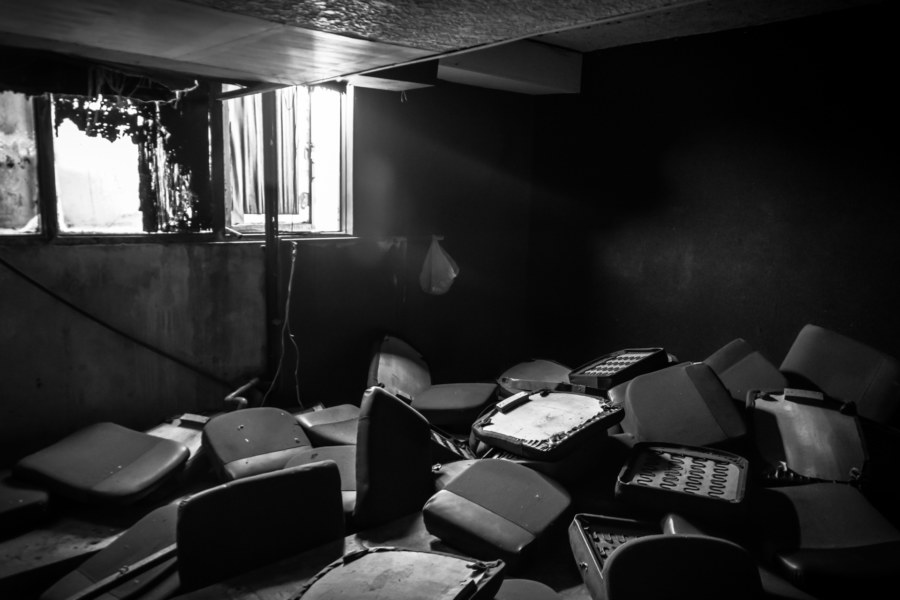
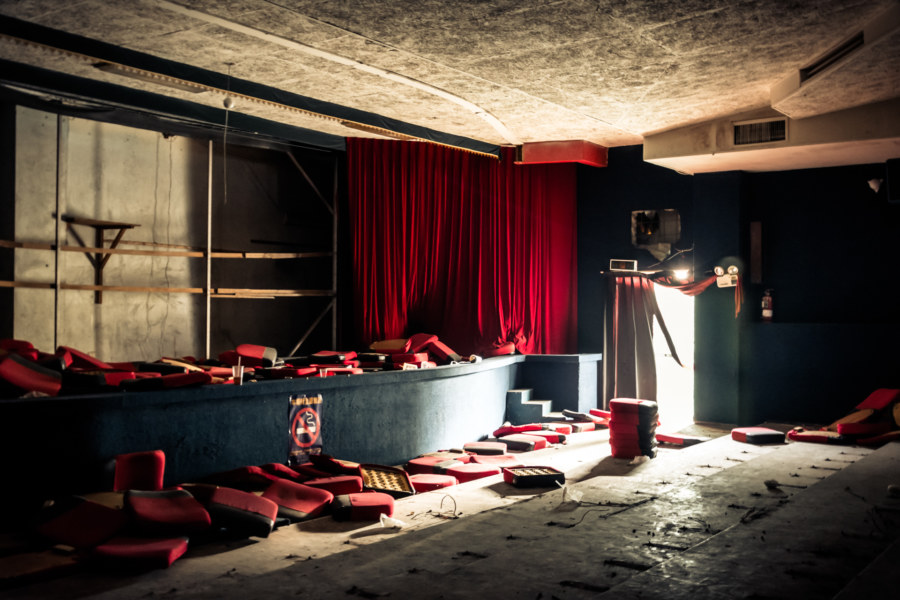
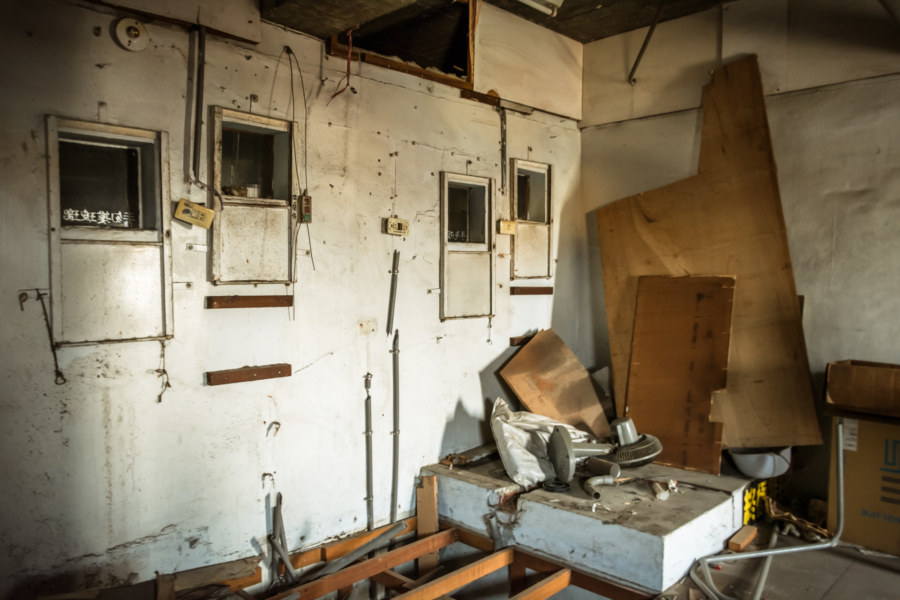
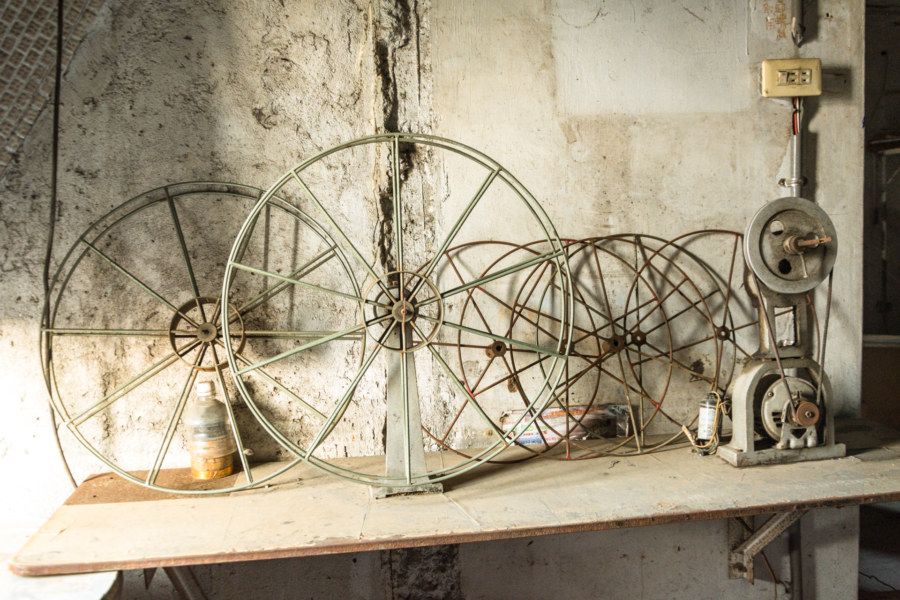
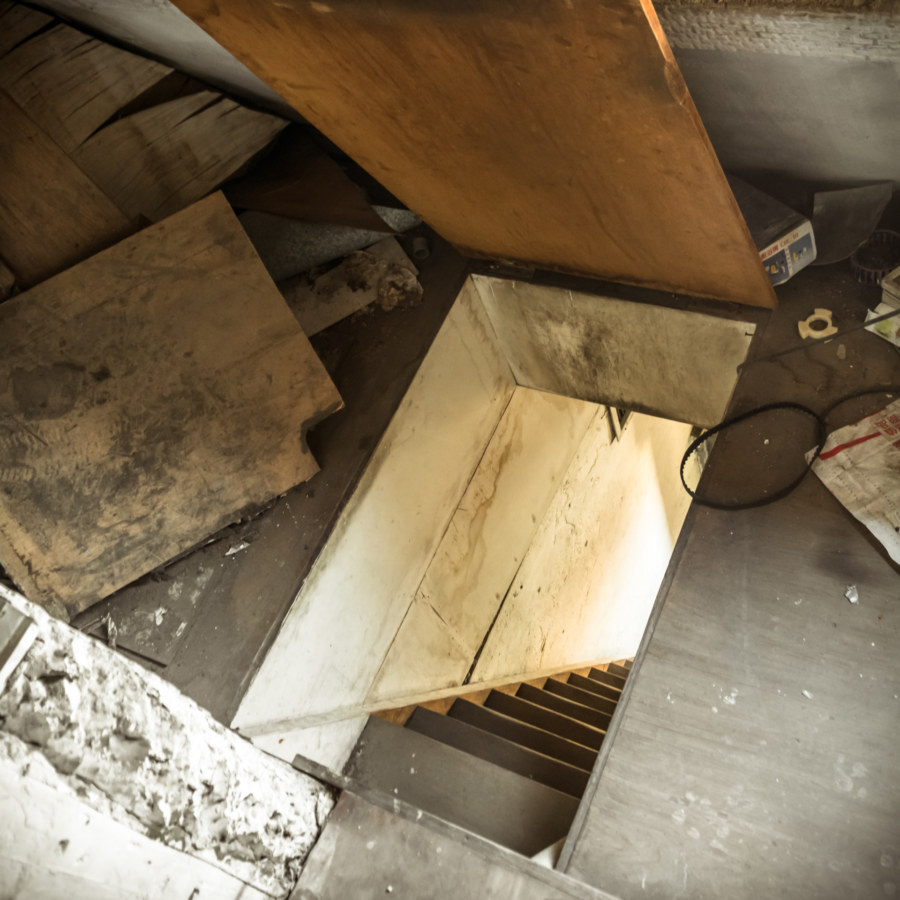
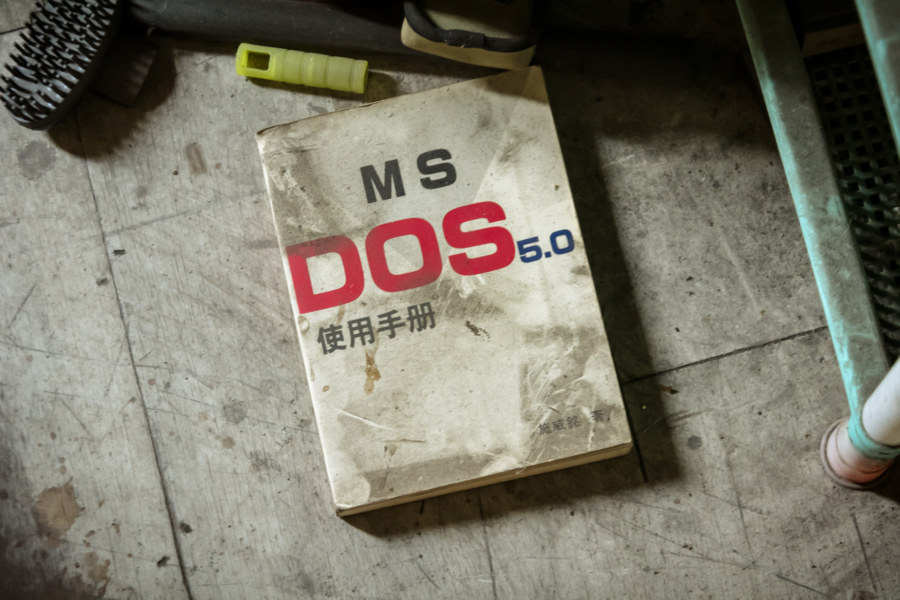

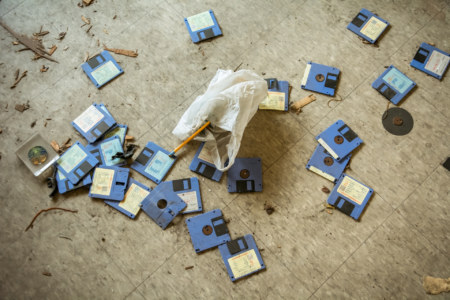
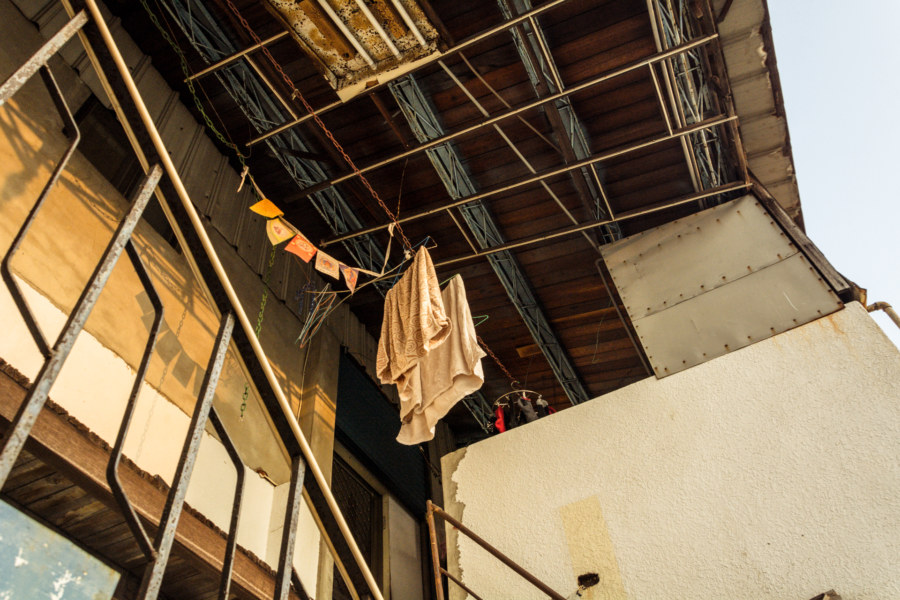
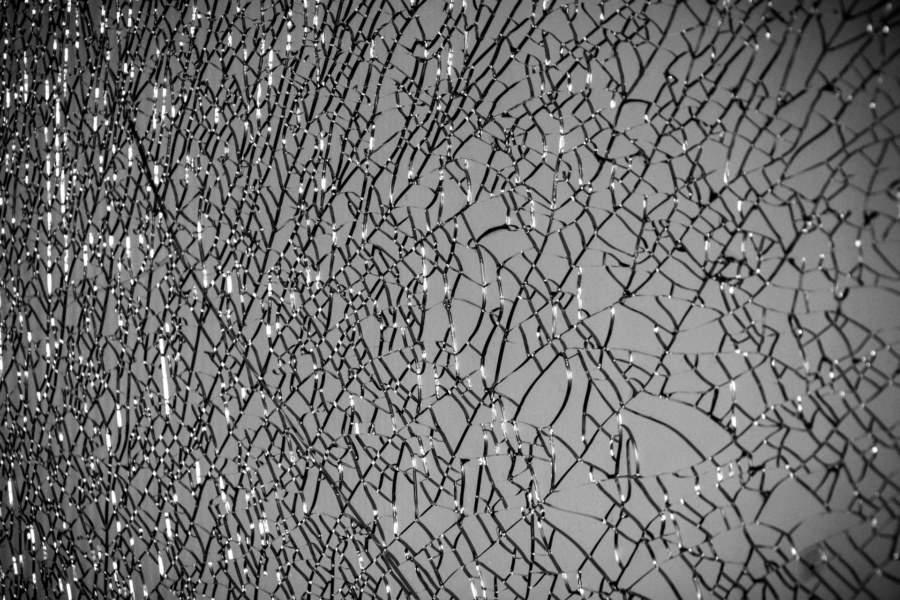
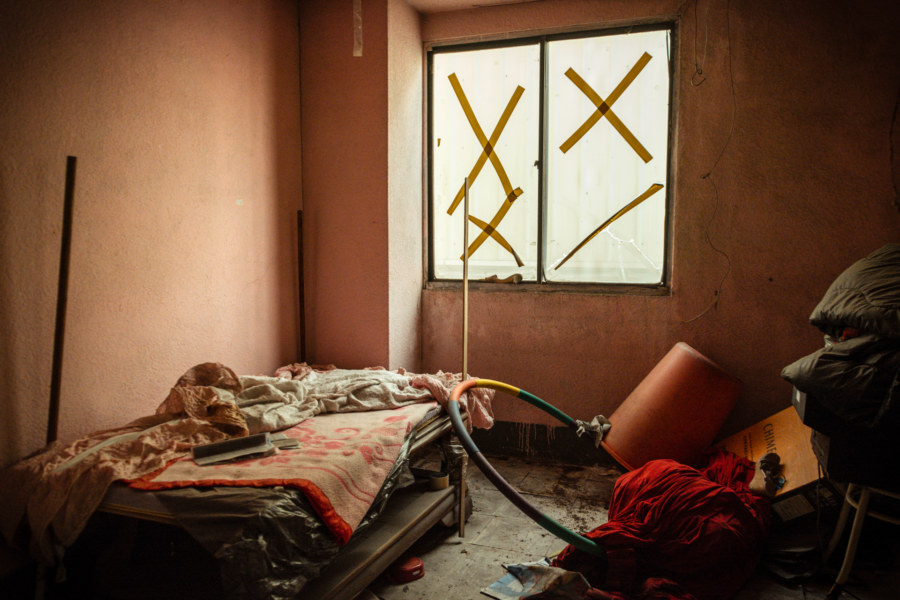
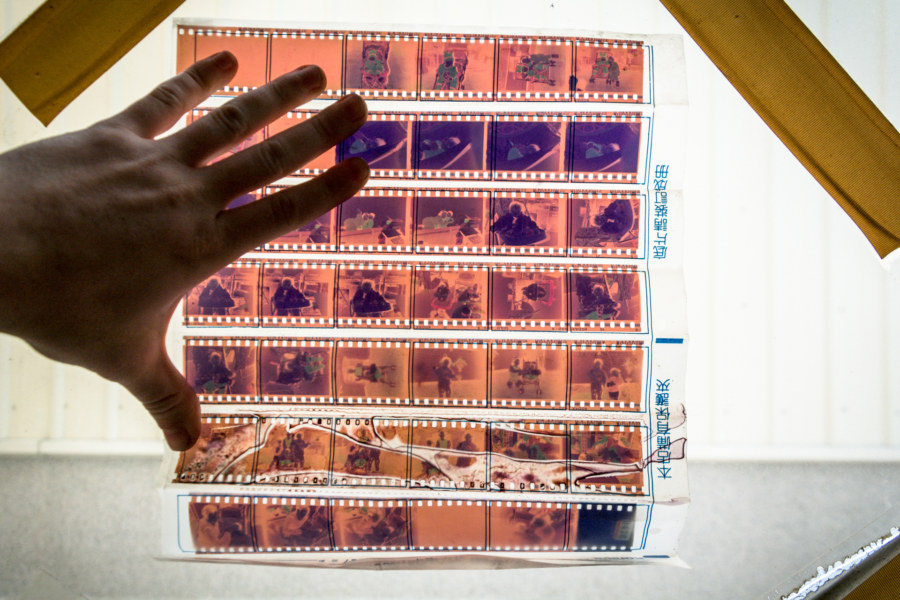
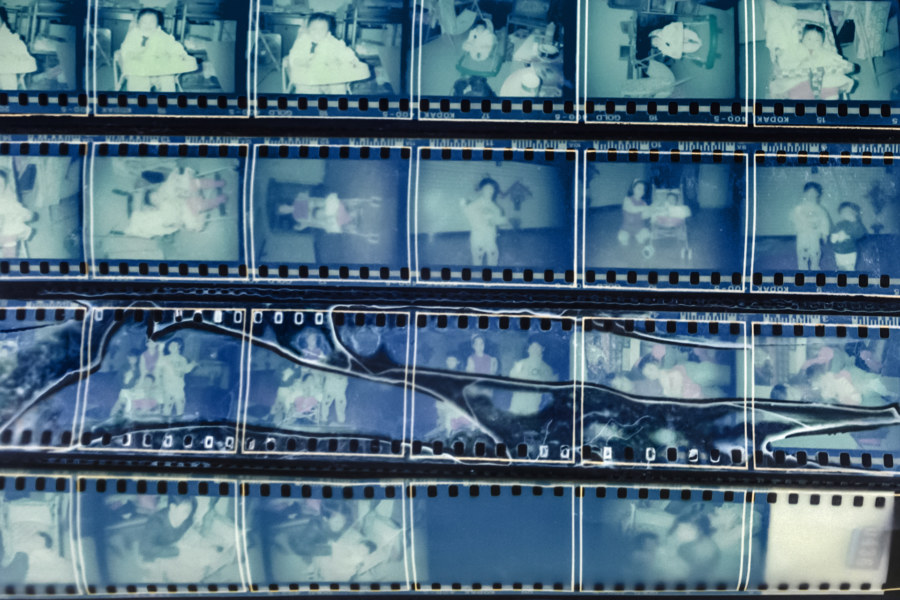
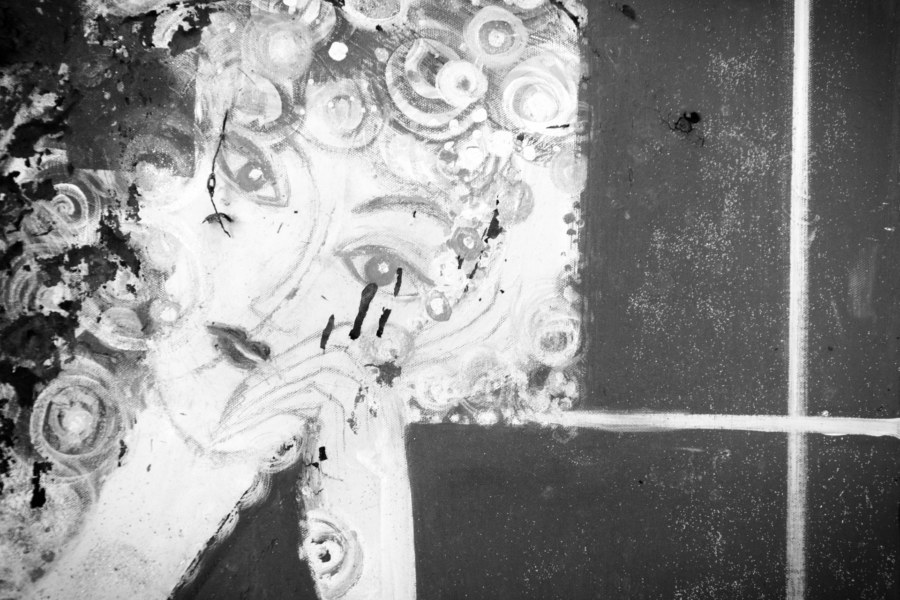
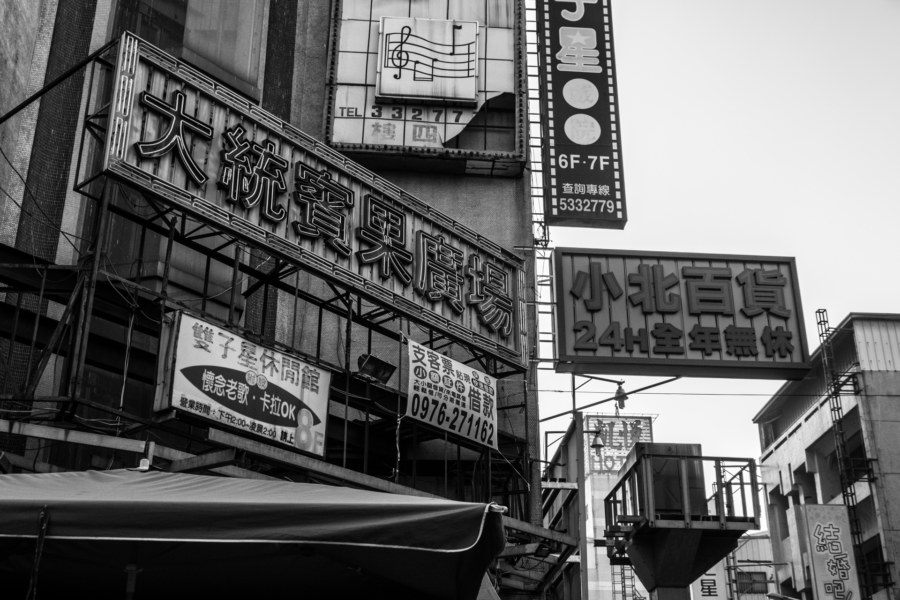
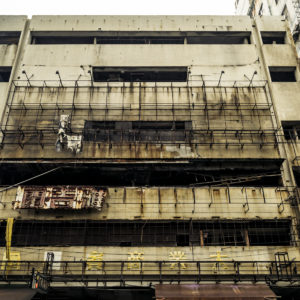
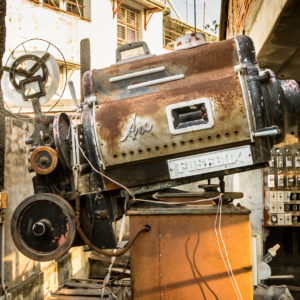
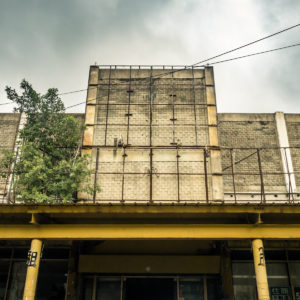
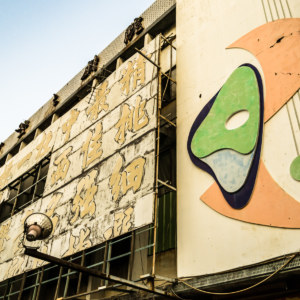
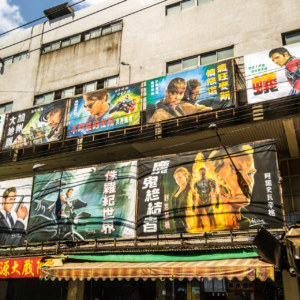
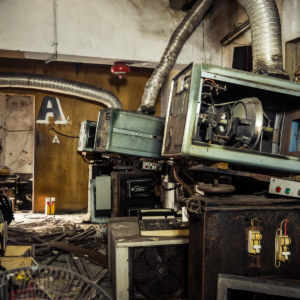
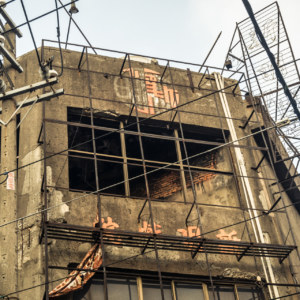
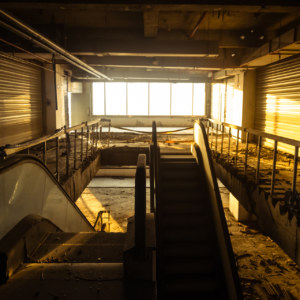
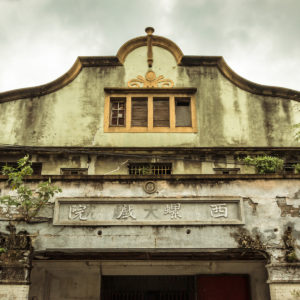
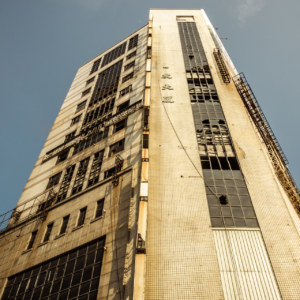
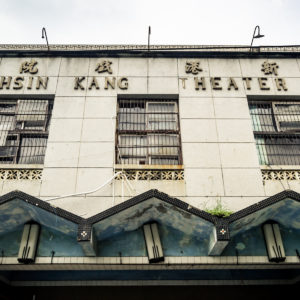
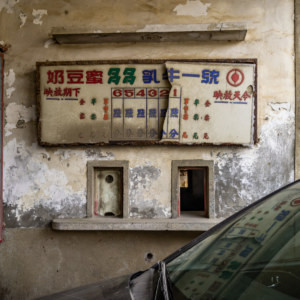
Write a Comment